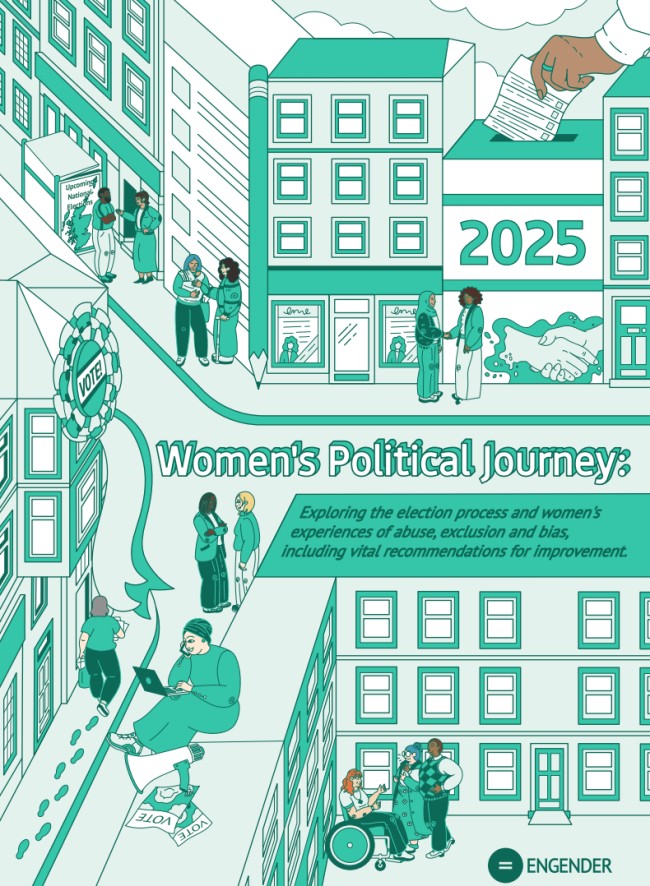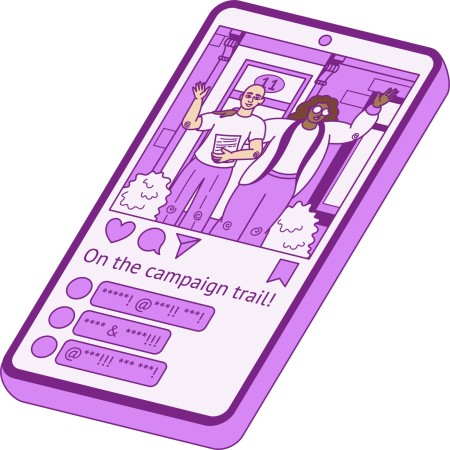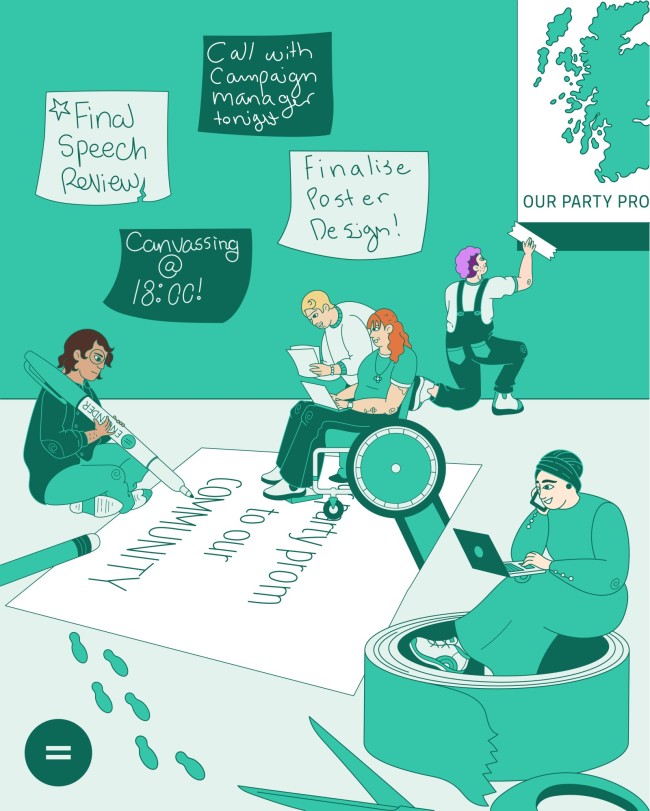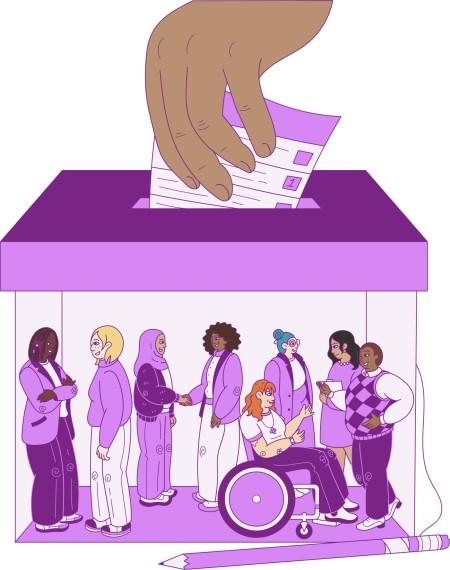Engender blog
Engender launches report on women’s experience of the election process
Today, Engender has launched a new report: Women’s political journey: Exploring the election process and women’s experiences of abuse, exclusion and bias, including vital recommendations for improvement. Find out more about the report below.

“Someone said to me [during the election] and I quote, ‘we can’t win here with someone who looks like her.”
The political arena is becoming increasingly hostile, especially for women and marginalised women.  Engender’s new report ‘Women’s Political Journey’ explores the candidate journey—from preparing to stand as a candidate, including all the interview and vetting processes, to being elected and what happens after.
Engender’s new report ‘Women’s Political Journey’ explores the candidate journey—from preparing to stand as a candidate, including all the interview and vetting processes, to being elected and what happens after.
There is still an image of the ideal candidate as white, middle-class, able-bodied, and male. For anyone who falls outside these categories, this means being prepared for additional barriers.
Our report shows that over 70% of respondents to a question on forms of abuse reported experiencing online harassment or trolling during their campaign. Only 11% felt “very safe” during their campaign period.
A survey respondent told us:
“I have been spat on, shouted at, abused and physically shoved countless times.”
Sexist bullying is a persistent problem within some branches and local parties, with findings indicating that disabled and minoritised women may be at increased risk. These experiences can cause women to question their positions and political futures. It is widely recognised that social media presents significant risks for women in politics, with Black and minority ethnic women at greatest risk.

57% of our survey respondents felt that positive action measures (PAMs) like quotas or all-women shortlists are ‘resented’ by some party members who feel their use is unfair or unnecessary. As has been reported to us, white men especially refuse to make space for other groups if it means sharing their privilege. Others reported only tokenistic acceptance of PAMs, reducing the ultimate impact of measures.
Very few parties are consistently collecting equalities monitoring information on prospective candidates. This is vital when it comes to ensuring candidate diversity and proportionate representation of Scotland’s communities.
 Equal Representation Development Officer Noomi Anyanwu states:
Equal Representation Development Officer Noomi Anyanwu states:
“Abuse, lack of support, and biases were reported widely among our survey participants and interviewees. Nearly 30% would not recommend candidacy to underrepresented groups. It’s understandable considering what women must endure to make it as politicians, but we don’t want to settle for this.”
“Change needs to happen, so we urge political parties, governments, councils, and other stakeholders to implement measures and commit to equal and diverse representation. I want to see at least 50% women in our parliaments—for that to happen, we need to see a real culture change first.”
Read the full report including vital recommendations for action here.
Share this post on …
Comments: 0 (Add)
Sign up to our mailing list
Receive key feminist updates direct to your inbox:
